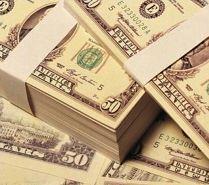
The US Senate has voted by 79 to 19 to debate a bill that would give the US government powers to impose tariffs on goods imported from countries that it thinks are undervaluing their currencies in order to boost exports.
China, which is widely believed to be the primary target of the bill, has responded with a government rebuttal that suggested the legislation, if passed, would 'seriously interfere with Sino-US trade ties'.
Analysts suggest the Chinese yuan is 20-40 per cent undervalued and the bill's US supporters say that, if it were allowed to rise, US exports to China would rise, reducing a trade gap of more than US$250bn.
As Moneycorp dealer Chris Redfern noted in hisregular columnin Eurofruit magazine recently, 'Without the constant intervention of the People's Bank of China there can be little doubt that the yuan would be far stronger.'
Similar bills have not been passed, however, and the strong words of House of Representatives Speaker John Boehner suggest this one might have to be shelved too. 'I think it's pretty dangerous to be moving legislation through the United States Congress forcing someone to deal with the value of their currency.'



